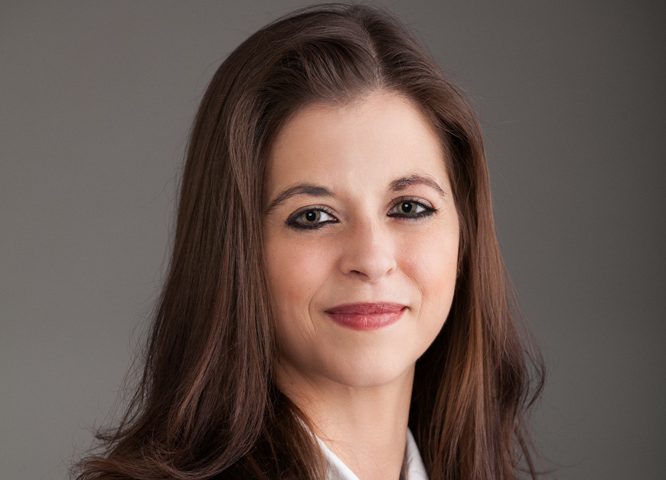
Asking the right questions: A framework for impact measurement
May 15, 2019
Interview: What does Notre Dame tell us about French philanthropy?
May 15, 2019Fundraisers are often encouraged to put donors first, but what happens when the scales of power tip too far into donors’ hands? Heather Hill, advisory panel member for Rogare, chair of CFRE International and fundraising trainer, explores the prevalence of donor dominance, sharing findings from Rogare’s ongoing investigation and encouraging fundraisers to speak out and challenge.
“For the amount of money I give, I ought to have the keys to the kingdom,” so said one donor to a fundraiser. “What will this get me with you?” said another, as he handed over a cheque.
Sadly, these experiences are all too common in the fundraising world. It’s vital that supporters are always treated respectfully, but there are times when the scales of power tip too far into donors’ hands.
Donor dominance is best described as an imbalance of power wherein the donor exhibits controlling behaviour that compromises the mission of an organisation and/or its ability to serve its beneficiaries.
Perhaps the most infamous example is of the Presidents Club’s annual fundraising dinner in the UK, which was exposed when the Financial Times sent an undercover journalist into the event. She was hired by event organisers to act as a hostess – a job for which she was told to wear a little black dress and skimpy underwear. She witnessed and reported all sorts of inappropriate behaviour from influential men who had gathered together with the purpose of giving to charity. Many were shocked that such bad behaviour was tolerated at a charity fundraising event.
I was not.
I’ve been talking about the issue of donor dominance – in all its various guises – for a long time. The sector needs to do more to address the issue; to protect fundraisers, beneficiaries and the integrity of the good causes we represent. But to do this, we first need to identify how widespread the problem is.
Investigating donor dominance
Together with Ian MacQuillin and through international think tank, Rogare, we launched a study calling for fundraisers to share their experiences. Over the past few weeks, it has attracted responses from over 330 fundraisers in 10 European nations and 7 others. 120 examples of donor dominance have been cited. The anecdotes range from deeply concerning accounts of sexual harassment and discrimination, to demands for access to services or programmes, or even getting family members admitted into universities. (The survey is open until this Summer and we encourage any fundraiser to contribute their views).
With this study, we are exploring the concept of donor dominance in general, as well as manifestations of it, such as mission creep/mission drift, demand for special treatment and sexual harassment. And the initial findings tell us that, yes, donor dominance is an issue that many fundraisers come up against regularly. Specifically, 72% of respondents reported experiences of donor dominance, with an additional 21% who have heard of it but haven’t experienced it themselves.
Two thirds of respondents encountered instances where donors had tried to influence how their donation would be used in a way that was not in line with the non-profit’s mission or objective (mission creep/mission drift). Three-quarters of our respondents encountered a situation where donors had tried to get benefits they weren’t entitled to. And, consistent with other reports from the sector, over half of respondents reported sexually inappropriate behaviour from donors, including one report of sexual assault.
Who are the donor groups identified as the main culprits? For the most part it’s major donors, board members and corporate funders. In other words, those who have the highest levels of power; the highest influence and impact on a charity’s voluntary income. The more significant the donor, the greater the potential for abuses of that power. It is especially concerning when there is the compounding effect of those in governance roles who also are significant donors, further exacerbating the imbalance of power.
One respondent even said: “I’m afraid I’m not comfortable sharing an example for fear of repercussions on my career.” And that was in an anonymous survey. For those who did report concerns, one quarter to one half (depending on the type of behaviour) were explicitly or implicitly told to keep quiet about the situation, so as not to rock the boat. It makes you wonder what stories aren’t being told.
Addressing the root causes of donor dominance
There’s an inherent power imbalance in relationships between donors and fundraisers. As fundraisers, we are told to put the donor first. At the same time, the number of charities continues to grow, creating a crowded and competitive sector where donors have multiple options to choose from for giving to any particular cause. As these two things converge, the idea of telling a donor “no” is quite challenging.
What if another donor can’t be found to replace the one lost? What if a ‘competing’ charity gets the gift instead? What if that’s the difference between meeting a fundraising goal and being fired? It would seem donor dominance is perceived as “cost of doing business” in the charity sector.
These challenges, along with other factors, are what make charities vulnerable to donor dominance. Compounding this, fundraisers have few resources available to them to address abuses of power by donors and no codes that define appropriate donor behaviour.
We need to identify and address the root causes that allow donor dominance to occur. In a sector dependent upon public trust, maintaining the integrity of the donor-fundraiser relationship is essential if our missions are to succeed. It’s time to raise our voices, for the sake of our beneficiaries, our colleagues, our sector and for ourselves.
Find out more about Rogare’s research into donor dominance or complete the survey.
About Heather Hill, CNM, CFRE
International advisory panel member of Rogare and chair of the CFRE International board of directors, Heather Hill is a highly-rated international speaker, AFP master trainer and consultant working across the philanthropic sector. She has an extensive background in leadership and management, fundraising, marketing and communications, grant seeking, strategic planning and analytics. A member of the Association of Lutheran Development Executives (ALDE), she received the ALDE Creativity Award in 2017 for her “thanksGiving Tuesday” initiative and the Jay Bleeke Award in 2014 for outstanding service as a young ALDE member. Heather is also a member of AFP’s Growth in Giving Working Group.




